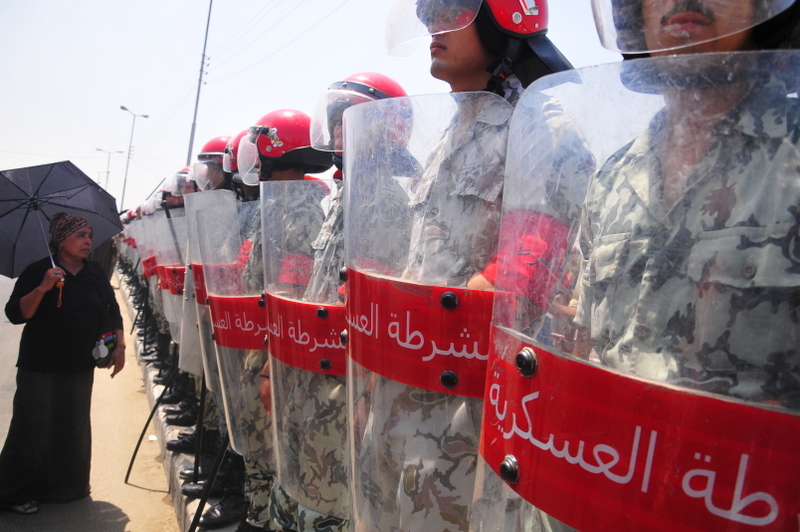Egypt’s Ministry of Planning and Economic Development has announced the results of a field survey to show the impacts of the novel coronavirus (COVID-19) pandemic on micro, small, and medium enterprises (MSMEs).
The results were released to mark the occasion of the Micro, Small and Medium-sized Enterprises (MSMEs) Day.
Hala El-Said, Minister of Planning and Economic Development, noted that the sector is a major driver of the Egyptian economy. It also represents one of the fastest-growing sectors that promotes economic growth and boost regional development.
The minister indicated that these projects play an important role in job creation, and that they are one of the Egyptian Government’s top priorities to help boost its economy and achieve sustainable development goals.
During the meeting, the results of the survey conducted using a model of 5,500 companies during the period from July to September 2020, were reviewed. Almost 75% of the companies suffered from a decline in their operations, while about 9% stopped working. The study also showed that major companies and the manufacturing sector felt the hardest hit during the pandemic.
Concerning the effects of the COVID-19 pandemic on employment, the results showed a 15% decrease in MSME employment, equivalent to 1.7 million, most of which are permanent full-time jobs.
The survey also showed that MSMEs were hardest hit by lower sales and lower orders, and they were also hardest hit by the increase in costs due to higher energy prices.
El-Said indicated that this sector was widely affected by the pandemic, ensuring that the Egyptian government was keen to provide the necessary measures to cushion the impacts.
These measures included: postponement of loan instalments for direct lending clients of small business owners (industrial/commercial/agricultural / service) until their conditions stabilise; in addition to postponing the payment or instalment of property taxes for the affected sectors for three months without delay fees.
El-Said added that this survey confirms Egypt’s keenness to support and develop the MSMEs sector, and the use of scientific tools in formulating policies related to this sector.
She explained that the survey was undertaken in cooperation with several international agencies, particularly the United Nations Development Programme (UNDP), the African Development Bank (AfDB), and the Japan International Cooperation Agency (JICA).
The results were revealed in the presence of several international partners, led by: Japanese Ambassador to Egypt Noke Masaki; Tako Mitsuburi, Economic Counsellor at the Embassy of Japan in Egypt; Randa Aboul-Hosn, Resident Representative of the United Nations Development Programme in Egypt; Samuel Kamara, Country Programme Officer for Egypt at the African Development Bank; Tarek Shash, Deputy Executive Director of the Medium, Small and Micro Enterprise Development Agency; and Raafat Abbas, Head of the Central Sector for Non-Financial Services at the Micro, Small and Medium Enterprise Development Authority (MSMEDA).
The meeting was attended by Ahmed Kamali, Deputy Minister of Planning, and Reham Rizk, Head of the Modelling and Forecasting Unit at the ministry.
Nevine Gamea, Minister of Trade and Industry and CEO at MSMEDA, said that Egypt has taken several initiatives and incentives to mitigate the impacts of the pandemic on the MSMEs sector. Her speech was delivered on her behalf by MSMEDA Deputy Executive Director Tarek Shash.
For her part, Randa Aboul-Hosn, UNDP Resident Representative in Egypt, stressed the importance of studying the impacts of the pandemic impact on MSMEs in Egypt. She highlighted that this sector is the backbone of the Egyptian economy, with about 3.74 million companies, and represents 44.6% of total institutions in the formal private sector.
The results of the survey will support a set of policies that will improve and facilitate the work of the projects and support their production capacity and sustainability. This is in addition to facing the negative repercussions of the COVID-19 pandemic.
The AfDb, represented by Country Programme Officer for Egypt Samuel Kamara and socio-economic expert Gehane El-Sokkary, emphasised the bank’s support for MSMEs as a major driver of private sector growth and employment potential.
“It is important that MSMEs are given access to effective financial and non-financial services to continue to grow and become resilient amid epidemics and crises,” El-Sokkary said.
“Among the necessary measures to be taken is raising awareness about energy efficiency measures as a way to save production and operating costs for MSMEs,” said Kamara.
For his part, Ambassador Noke praised the Egyptian Government’s serious efforts to address the COVID-19 crisis. He stressed the country’s macroeconomic performance, which is one of the best in the region, and this is evidenced by the continuation of positive growth, a reduction in the budget deficit, and moderate inflation.
The Ambassador affirmed that Japan is determined to continue keeping pace with the Egyptian experience of sustainable and comprehensive development, especially MSMEs.
During the meeting, a set of recommendations were reviewed, including closely monitoring the use and effectiveness of liquidity support measures and frequently reviewing their eligibility criteria.
The recommendations also included expanding coverage and improving the targeting of liquidity support measures through temporary payments to laid-off workers, especially for women in rural areas.
The recommendations also included structural measures that include non-financial services aimed at helping MSMEs adapt to the changing business environment and build resilience, support innovation and technology development,
These measures include supporting skills development; sourcing inputs and production requirements; developing equipment and machinery; supporting sustainability; supporting start-ups facilitating borrowing; initiating an ambitious large-scale digital programme; fast-tracking public procurement to open new markets for MSMEs.
In addition to developing and implementing supplier development programmes, especially in agricultural and manufacturing commercial value chains, with a focus on the border governorates and the governorates of Upper Egypt, in addition to providing financial assistance by reducing energy prices, reducing rents and lowering tax rates.
The field survey of the impact of the coronavirus pandemic impact on MSMEs included conducting a telephone survey of about 2,000 Egyptian micro, small, and medium enterprises. Another 5,500 MSMEs were surveyed by the Central Agency for Mobilization General and Statistics in cooperation with the Ministry of Trade and Industry, Small, Medium and Micro Enterprise Development Agency, African Development Bank, United Nations Development Programme, Japan International Cooperation Agency.



